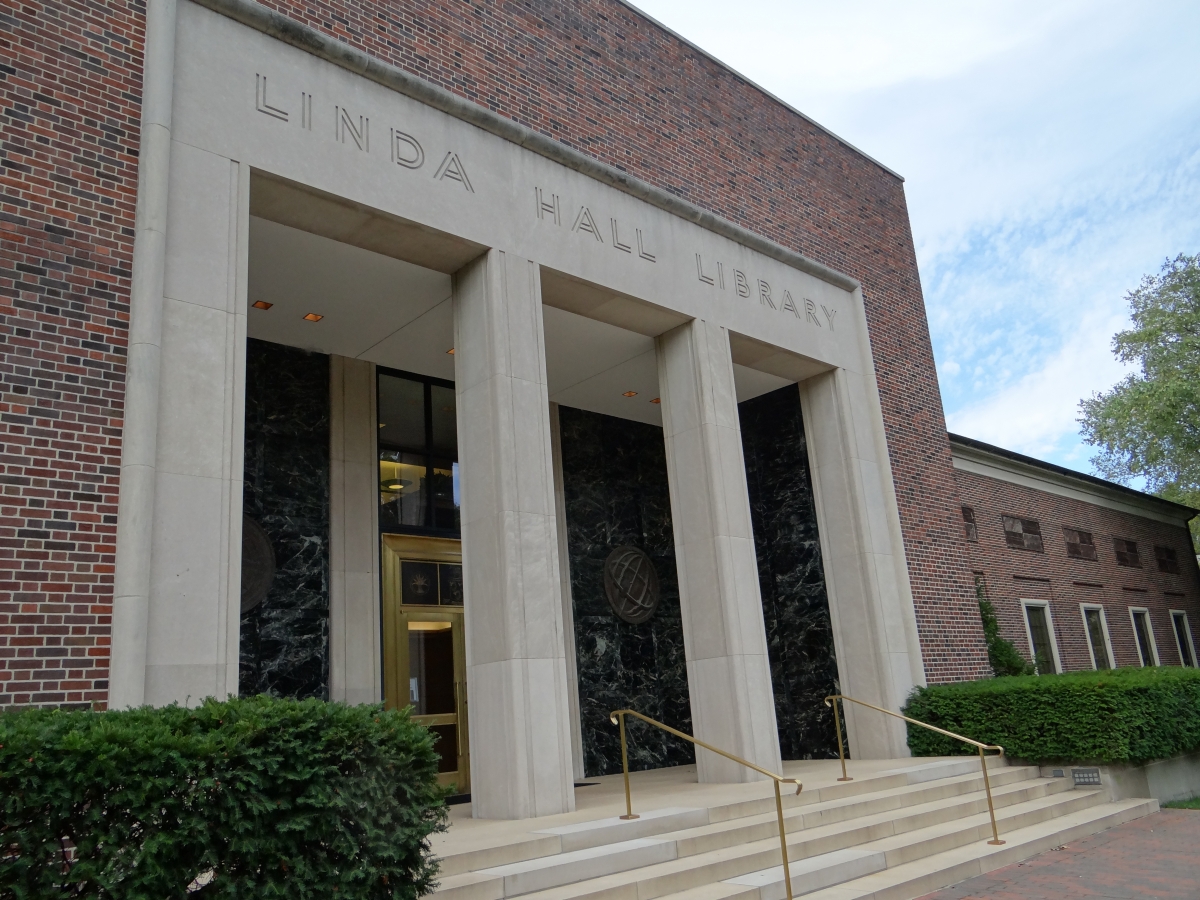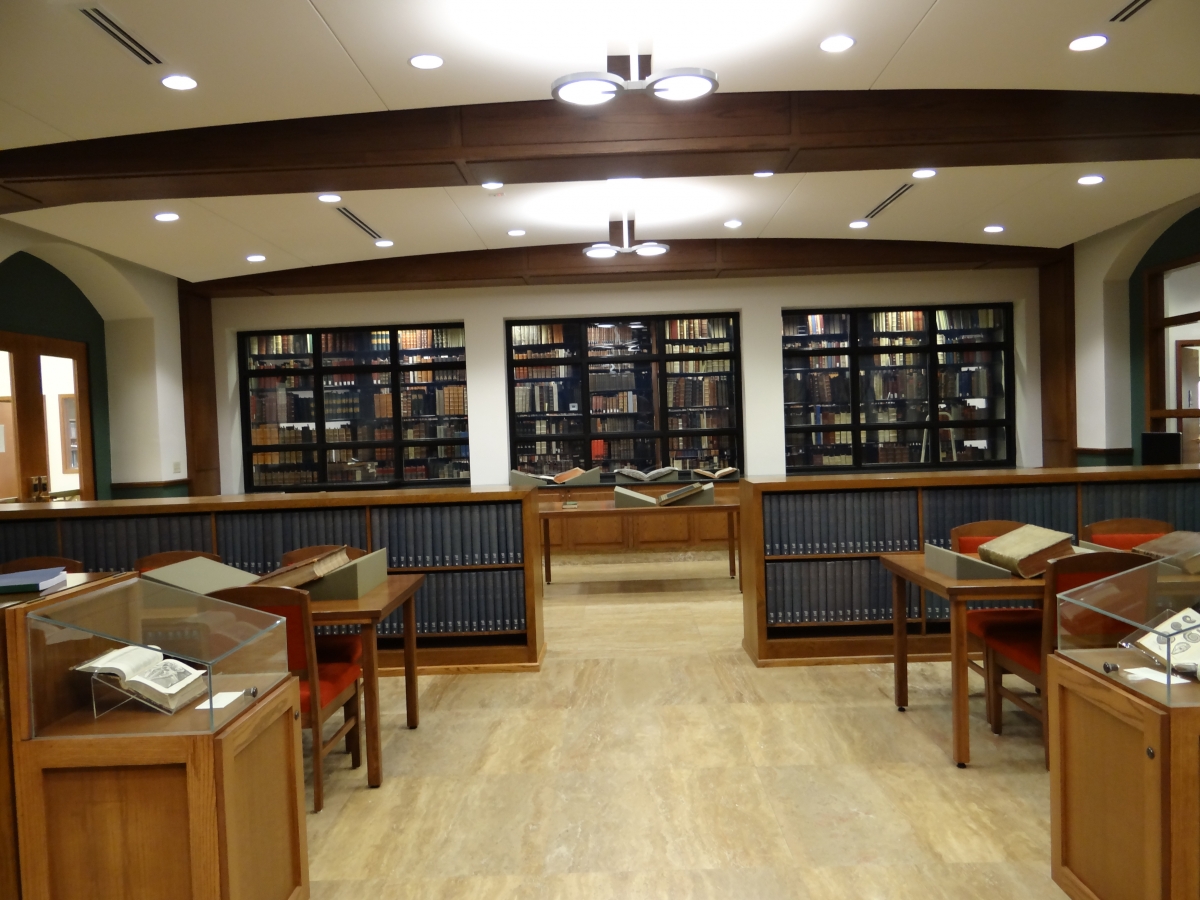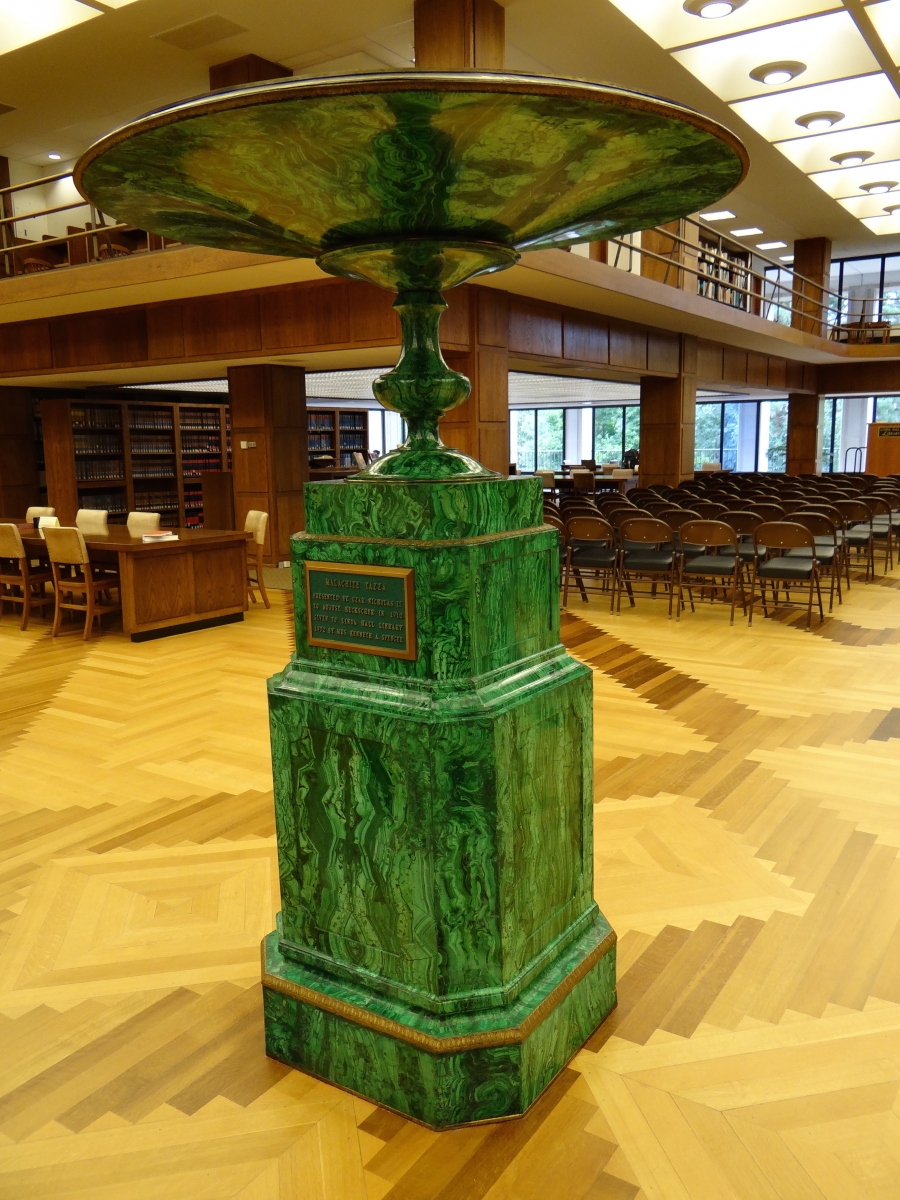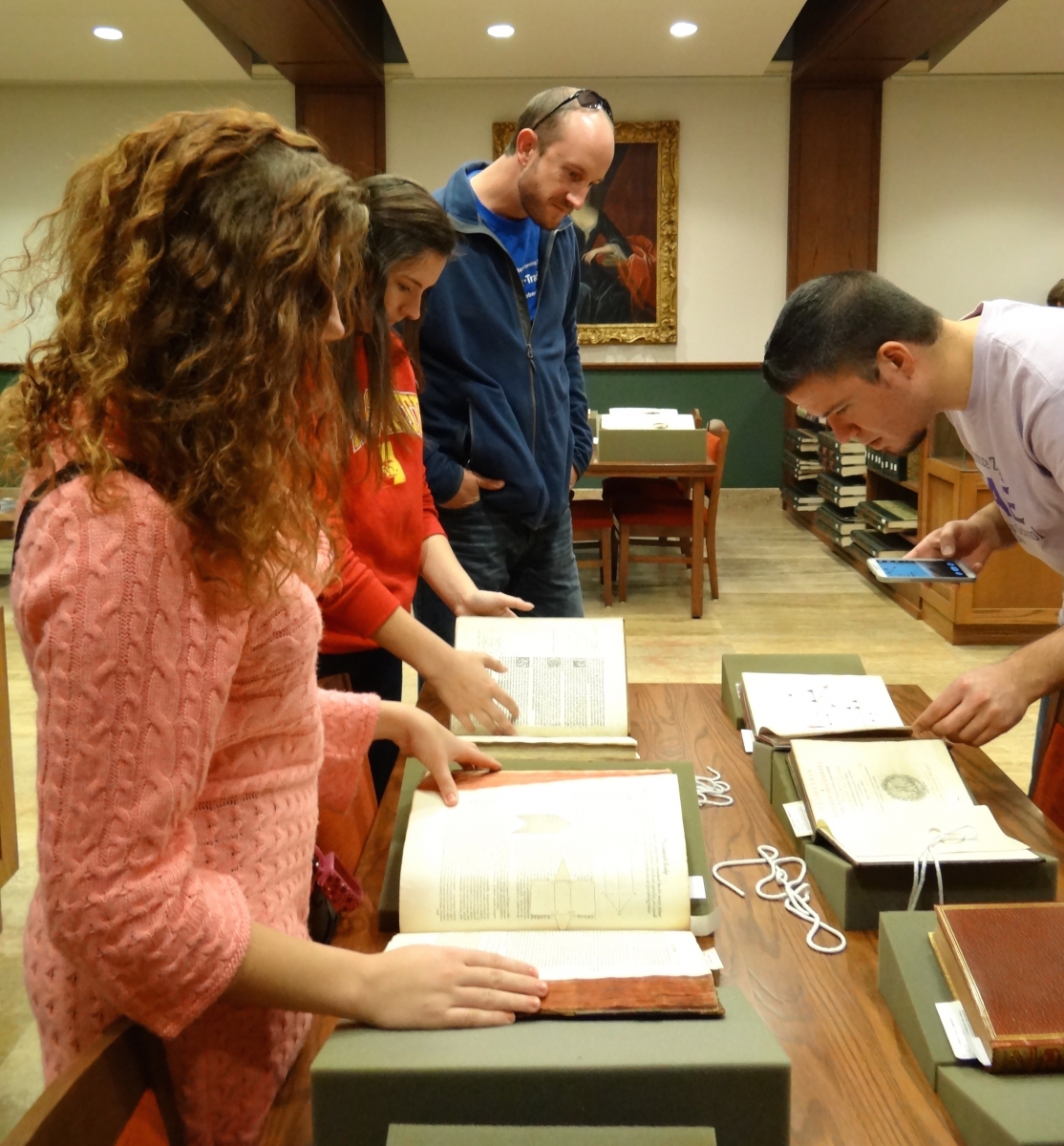- About MAA
- Membership
- MAA Publications
- Periodicals
- Blogs
- MAA Book Series
- MAA Press (an imprint of the AMS)
- MAA Notes
- MAA Reviews
- Mathematical Communication
- Information for Libraries
- Author Resources
- Advertise with MAA
- Meetings
- Competitions
- Programs
- Communities
- MAA Sections
- SIGMAA
- MAA Connect
- Students
- MAA Awards
- Awards Booklets
- Writing Awards
- Teaching Awards
- Service Awards
- Research Awards
- Lecture Awards
- Putnam Competition Individual and Team Winners
- D. E. Shaw Group AMC 8 Awards & Certificates
- Maryam Mirzakhani AMC 10 A Awards & Certificates
- Two Sigma AMC 10 B Awards & Certificates
- Jane Street AMC 12 A Awards & Certificates
- Akamai AMC 12 B Awards & Certificates
- High School Teachers
- News
You are here
Mathematical Treasures at the Linda Hall Library – Linda Hall Library
The Linda Hall Library (LHL) is an independent research library specializing in engineering, science, and technology located in Kansas City, Missouri. Opened in 1946, the library collections number over one million volumes, including a History of Science Collection, which contains many rare books from the history of mathematics. The LHL Digital Collections provide access to nearly a quarter of a million images from the History of Science collection, including over 75 complete mathematical works.

In addition to access to extensive open stacks and a spacious reading room, visitors to LHL can also peruse the current exhibitions in two gallery areas, as well as visit the William N. Deramus III Cosmology Theater. The exhibitions focus on a theme and typically involve rare books. Some of the past exhibitions have online versions, including two on astronomy and one on Napoleon’s expedition to Egypt, which has information on mathematicians Gaspard Monge and Joseph Fourier. Patrons can also request to look at books and other material from the closed stacks. Complete runs of many journals, serial publications, monographs, conference proceedings, and other reference materials can be found in LHL. For mathematics, this includes important journals such as Acta Academiae Scientiarum Imperialis Petropolitanae (the transactions of the imperial academy of sciences in St. Petersburg, in which Euler published many articles), Acta Mathematica (founded by Mittag-Leffler in Stockholm), and Journal de Mathématiques Pures et Appliquées (founded by Joseph Liouville).
Follow the link for more information about using the library. The library also hosts lectures and other events on a regular basis. Up-to-date information can be found by visiting the LHL webpage at www.lindahall.org or by liking the LHL Facebook page.
The LHL History of Science rare book collection contains a wealth of information for those wanting to take a firsthand look at resources in the history of math. A Rare Book Room has windows showing into the climate-controlled vault and a Reading Room where visitors can sign up as a “reader”. In order not to damage the precious materials, readers are given training in how to handle the valuable books with clean hands and resting on foam cradles, how to turn pages, and how to hold down pages in order to photograph particular pages. In addition to the vault, which contains over 10,000 volumes, there is a caged area with over 10,000 “medium rare” books and periodicals.

If you plan on visiting the Linda Hall Library, information about hours of operation and directions can be found here. Class tours can be scheduled so that students can have the opportunity to see original sources firsthand. Information about tours can be found here.
It is also possible to take a virtual tour of a portion of the history of mathematics collection at LHL through the Digital Collections. The Linda Hall Library’s digital collections in the history of science contain nearly a quarter of a million images. Visit the webpage and hover over the word “Collections” to see the list of digital collections, including History of Mathematics. Over 75 important works in the history of mathematics are completely digitized and available online. The use of LHL images is encouraged, especially for educational use. Information about image rights and reproduction, as well as information about requesting an image, can be found here. Fees may apply for requests to publish images.
Research fellowships are available for those interested in spending an extended period of time with the collections at the Linda Hall Library. Fellowships supporting projects using the LHL collections, including research in the history of mathematics, are available for time periods of one month up to nine months. More information on LHL Fellowships can be found at http://www.lindahall.org/fellowships/.
The author would like to extend special thanks to Cindy Rogers, LHL History of Science Department, for her patience in retrieving books from the vault for the author and her knowledge of books and history; to Dr. William B. Ashworth, Jr., UMKC and LHL, for his expertise on the history of science and emblematic science; and to the LHL Digital Collections Team, especially Sally Crosson, for the timely provision of professional images. Thanks also go to Pittsburg State University for sabbatical support, to LHL for the opportunity to be immersed in the mathematical treasures at LHL during a Research Fellowship in the fall of 2015, and to the friendly LHL staff for being so helpful.
Cynthia J. Huffman (Pittsburg State University), " Mathematical Treasures at the Linda Hall Library – Linda Hall Library," Convergence (January 2017)






